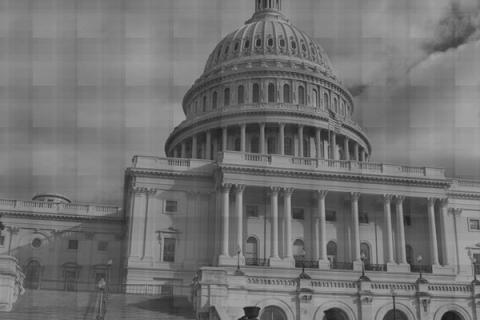The last few days have seen a great deal of vitriol from all sides commenting on California's sad budget situation. Democrats and left leaning commentators railed against a Republican plan that proposed about $22 billion in budget "solutions" only to be followed by a similar right side hyperbolic rage against a "majority vote" Democratic plan that would have trimmed about $18 billion from the $40 billion or so 18 month cavern.
At the risk of appearing out of vogue, I'd suggest that the peanut gallery has actually missed an important milestone in the road to agreement. Yes, we shouldn't have gotten here in the first place. Yes, it's the Legislature's fault. Yes, it's the Governor's fault. Yes, it's the fault of past Legislatures and Governors. Oh and yes, it's the fault of labor unions and business interests. Oh, let's not forget the voters who keeping passing clever initiatives sponsored by special interest groups. O.K., did we get that out of the way? Did I miss anyone? If so, I am sorry. It's your fault to.
But, what happened in the last two weeks is that Democrats and Republicans each published something they were willing to be for, rather than pontificate about what they were against.
In each of their plans there was a great deal of material for their respective base voters to dislike.
The Republicans deserved more credit than they got for suggesting that California seek voter approval for general fund use of tax streams previously approved by voters for special purposes.
It was innovative, and a significant recognition that the general fund budget gap could not be closed without new revenues. In a more reasoned environment of public comment it would have been acknowledged as such.
Similarly, the Democrats "majority vote" plan has largely been castigated because the majority party had the temerity to find a way to narrow the budget gap with a majority vote.
The plan was decried as sneaky and underhanded. Nonsense. In the end, it may or may not be legal. That would be for a court to decide. But, the approach was not invented out of whole cloth. The Legislature has used majority to votes to adopt conformity to the Federal tax code balanced by tax cuts elsewhere to keep the "net" tax effect neutral dozens of times over the past twenty years.
No one argues the fact that fee increases require a simple majority vote and the swap of fee based revenues in place of historical taxes on gasoline actually strengthens the nexus on highway monies thus assuring that "fees" paid on fuel will go to transportation-a long sought reform by many folks.
But, more importantly, the Democratic plan also signals a move toward the center. It includes significant measures opposed by core Democratic constituencies and, rather than just hold a press conference, the Democratic legislators actually put up the votes.
Both the majority party and the minority party have a responsibility to follow the rules. If the rules allow the majority party to effectuate solutions that they are willing to stand behind, it is not only their right to do so, it is their responsibility.
Whether we like their solutions is another question to which we are all entitled to an opinion.
So, while this Legislature has been slow to understand the depths of the problem, both caucuses show signs of warming to the task. Wherever they land will be unfriendly territory. California's problems are beyond "structural". To fix this permanently will require us to fundamentally rethink the roll of State government.
I don't think the Legislature is quite there yet. But, piling on with venom- filled-and generally simplistic-criticism contributes to the problem not the solution. Democracy is about compromise. It is the process we depend upon as an alternative to violent resolution of differences of opinion. When we arrive at those compromises, we retain our principles and carry them on to the next fight. It is why the job is never done.
These are serious times. We would all be well served to carry a little humility and charity into the public dialogue. It is more likely to reward those who understand that their job is not to cast solutions in their own image but to seek the common ground, temporary that it may be, that allows our communities to begin the work of moving forward.
